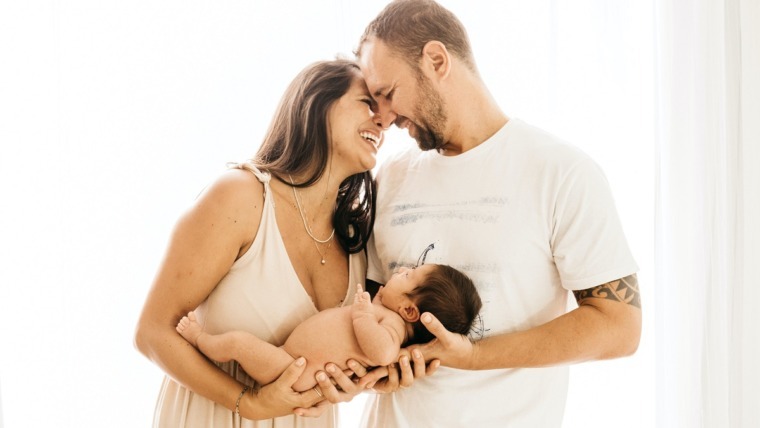
Written by Sam Taylor from The Nurture Project
As the summer holidays come to a close, we turn our minds to the year ahead and what we hope to achieve. We are often looking for ways to be better versions of ourselves. Perhaps we’d like to lose weight, exercise regularly, start that side hustle or be happier, calmer, more productive or more adventurous.
Whatever it is that we want to achieve, it’s often easier said than done. After all, it’s estimated that 80% of new years resolutions have fallen by the wayside after just one month. So how can we ensure we make these changes and have them stick?
Increasing evidence points to having a daily routine as the key to living the life you want.
As American author and leadership expert John Maxwell put it, “You’ll never change your life until you change something you do daily. The secret of your success is found in your daily routine”. I know what you’re thinking, “Oh how exciting, a routine!”.
No? Me either.
There’s no getting around the fact that routines and the people who subscribe to them sound dull (have a look at Mark Wahlberg’s crazy daily routine if you haven’t already).
But there’s also no getting around the fact that most successful and productive people credit their achievements to following a daily routine. For example, Oprah meditates for 20 minutes each day and Barak Obama exercises at 6.45am every morning.
Haruki Murakami, the Japanese author whose books have been international bestsellers, tells of his daily routine, “When I’m in writing mode for a novel, I get up at 4:00 am and work for five to six hours. In the afternoon, I run for 10km or swim for 1500m (or do both), then I read a bit and listen to some music. I go to bed at 9:00 pm. I keep to this routine every day without variation. The repetition itself becomes the important thing; it’s a form of mesmerism. I mesmerize myself to reach a deeper state of mind.”
Routine gives us a sense of security and stability. It gives our life a structure that makes sense to us. Having a routine that we’ve chosen means that we can wake up with a sense of order in our lives.
Researchers have found that having a routine can have psychological benefits including alleviating insomnia, anxiety and stress.
When we have a routine, the actions in the routine become habitual. This means that you don’t have the think about the action or make decisions about it. This frees up mental space for other tasks. This is the reason cited by Mark Zuckerberg and Steve Jobs for wearing the same “uniform” of grey t-shirt (Zuckerberg) or black polo neck (Jobs) each day.
Routines allow you to carve out time to pursue your passion every single day. Once it’s a routine, there’s no more wriggling out of painting or writing or working on your business plan because you’re too tired or you’re not feeling inspired.
And of course, routines help us to build good habits. Habits are automatic responses that we have taught ourselves over time. And we have hundreds of them. From the order in which you freshen up in the bathroom each morning (do you wash your face or brush your teeth first?) to what you do when you arrive back home after work in the evening. Having a routine means you can incorporate good habits that serve you, into your daily life.
Routine also builds momentum over time to be more than just the single action. Doing that same something each day, even something small, leads to big changes over time. It reminds me of the old Chinese proverb by Laozi “A journey of a thousand miles begins with a single step”, meaning that great things commence with simple beginnings. Although it may not seem that doing this one small thing today means much, in the long run, it all adds up. For example if you run 2km per day, in a year you will have run 730km, the distance of 17 marathons.
So what are some things that we can incorporate into our daily routine? There’s no need to overcomplicate your routine. Incorporate things you enjoy (or think you can learn to enjoy!), or that you feel will have a long-term benefit to you. Here are some suggestions:
Thinking time: set aside time each day to think through any problems or worries instead of letting them build up.
Journalling: the benefits of journaling are huge. It gives you an opportunity to lay down your thoughts, concerns or worries and get some order out of them. Are you noticing a pattern of thoughts, for example? I’m a big fan of journaling to refocus your mind. I regularly use my journal to note down the things I am grateful for, which turns my mind to look for the positive in life.
Daily exercise: start where you are comfortable. This could be a walk, taking the stairs at work or a few yoga poses.
Daily Meditation: 5-10 minutes when you first wake can set you up with clarity and calm for the day ahead.
Nutrition routines: This could be as simple as eating a healthy breakfast or bringing lunch to work to avoid fast food options.
- Getting to bed at the same time and waking at the same time each morning.
- Creating a bedtime wind-down routine: for example a cup of herbal tea and reading a book.
- Scheduling something you enjoy each week: perhaps it’s a painting class or meeting up with a girlfriend for a coffee.
3 tips to ensure the routine sticks
Of course it’s all very well to decide what your new routine is going to be, but to get it to stick can be trickier. Here are some tips adapted from psychologist and author B.J. Fogg.
Start small. "Get more exercise" is not small. "Eat healthier" is not small. This is a big reason why New Year's resolutions don't work. For example, instead of "Get more exercise" choose "Take the stairs each morning to get to my office”, or "Have a smoothie every morning with kale in it". These are small actions and therefore more likely to stick.
Attach the new action to a previous habit. Work out what habit you already have that you regularly do. For example, if you already go for a walk 3 times a week, then add on 10 more minutes to the existing walk. This connects the new habit to an existing one.
Make the new habit easy. You have to make the new action easy to do for at least the first week. Because you are trying to create a new habit, you need to practice the new habit 3 to 7 times before it will "stick" on its own. To help you through this 3 to 7 times phase make it as easy as possible. For example, write a note and stick it in your walking shoe that says "Total time today for walk is 30 minutes". Write a note and put it where you put your keys that says: "Today use the stairs." Put kale in the blender and have all your smoothie ingredients ready to go the night before.
Above all, have fun with whatever it is that you choose - look at it as an adventure rather than a chore and you’ll find it easier to stick to. And if you do, just imagine what you would have achieved by this time next year…
The Power of The Power of The Power of The Power of The Power of The Power of The Power of




1 Comment